Clenbuterol cough syrup: instructions. How to use?
Clenbuterol cough syrup is officially recognized as one of the most effective and versatile drugs.
In the autumn-winter period, immunity is especially susceptible to various kinds of attacks from pathogens.
A weakened body fails and there is such an unpleasant phenomenon as a cold, usually accompanied by a protracted, severe cough.
If you do not start taking the necessary measures to combat this symptom in time, it can provoke many complications and become chronic.
Fortunately, today medicine offers a large selection of drugs to solve this problem, available in forms for every taste - tablets, capsules, suspensions.
Clenbuterol: composition and properties of the drug
Clenbuterol is a unique medicine for getting rid of any kind of cough. The main properties of the syrup are a powerful expectorant effect, moisturizing the respiratory tract, softening irritated mucous membranes, and eliminating pain.The drug helps to remove signs of inflammation, activate the production of new healthy mucus by cells, and prevent the reproduction of pathogenic microorganisms.
Clenbuterol is available in the form of a syrup, which is very convenient, and also has a delicate sweetish aftertaste, as a result of which it is also successfully used among pediatric patients. The preparation is accompanied by an official instruction (abstract) and a measuring spoon.
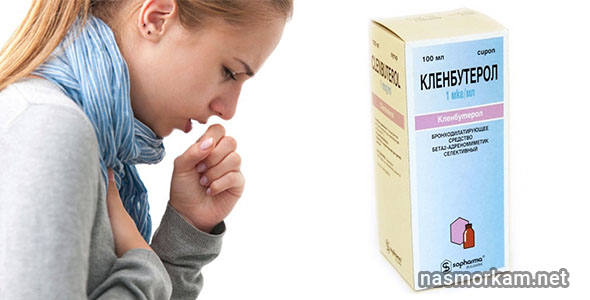
Clenbuterol contains original and highly effective components that provide relief to the patient in the shortest possible time:
- Clenbuterol hydrochloride is the most basic and important active ingredient with a bronchodilatory effect.
- Citric acid, which creates a strongly acidic environment in the focus of inflammation, which is detrimental to many bacteria.
- Sorbitol - gives the drug that very sweet taste, acts as a substitute for sugar, which is especially important for patients who have contraindications to its use.
- Glycerin, sodium citrate, sodium benzoate, raspberry extract and other substances - as additional auxiliary components.
The components of the syrup, as a rule, do not cause hypersensitivity reactions - which, of course, is also a great advantage when choosing this medicine.
Clenbuterol for cough: indications for use
What kind of cough can Clenbuterol relieve? Its reception is shown at:
- Cough of the asthmatic type (with bronchial asthma, asthmatic bronchitis).
- Allergic cough (in the form of symptomatic therapy, coupled with the parallel intake of suitable antihistamine drugs).
- Unproductive forms of cough (syrup facilitates the release of sputum masses, accelerates their movement through the respiratory tract).
- Running and chronic cough forms.
- In diseases of viral, bacterial etiology (colds, flu, pharyngitis, pneumonia, as well as laryngitis).

The syrup is especially effective in dealing with problems such as dry throat and the removal of large amounts of phlegm from the respiratory tract. An additional bonus is a small bactericidal and softening effect of the drug.
Source: website
What are the contraindications?
The composition of the drug is characterized by the absence of various substances that can have a negative effect on the body - it does not contain hormones, alcohols, anesthetics.
However, there are a number of conditions in which it is better to refrain from using Clenbutarol:
- Individual hypersensitivity reactions to one or more components of the drug.
- Diseases of the thyroid gland.
- Palpitations, aortic stenosis, acute phase of myocardial infarction (the drug has a fairly high effect on the cardiovascular system).
- Pregnancy (especially the first and last trimester), lactation.
- Strong manifestation of side effects.
- Clenbuterol is also contraindicated if the patient has some eye diseases (in particular, glaucoma).
In the presence of the above contraindications, Clenbutorol is replaced by a similar agent with other components in the composition. 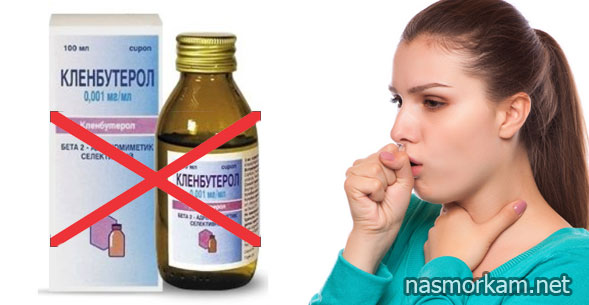
Possible side effects
Undesirable side reactions while taking the medicine may occur due to non-compliance with the correct dosage or insufficiently thorough study of contraindications.
Among such actions, the following are most often described in clinical practice:
- Tremor of the small muscles of the body (often these are the fingers of the limbs), in severe cases, muscle cramps
- Headaches, dizziness, anxiety, nervousness (due to increased excitability of the central nervous system), general weakness, fatigue
- Sharp jumps in blood pressure, increased heart rate, cardialgia, heart rhythm disturbances (in patients with pathologies of the cardiovascular system)

- Skin allergic reactions (rashes, redness, Quincke's edema, itching)
- Violation of the normal functioning of the organs of the gastrointestinal tract - nausea, vomiting, dry mucous membranes
- Difficulty urinating
The list of side effects of Clenbuterol is quite extensive, therefore, before prescribing it, specialists carefully study the history of the disease and the patient's life, taking into account all the individual characteristics of his body.
How much does Clenbuterol cost: pharmacy price
Instructions for use for adults
For adult patients and children over 12 years of age, Clenbuterol cough syrup is prescribed at a dose of 15 ml 2 times a day (preferably in the morning and evening) after meals or half an hour to an hour before meals. It is convenient to measure the amount of the drug with the measuring spoon attached to it.
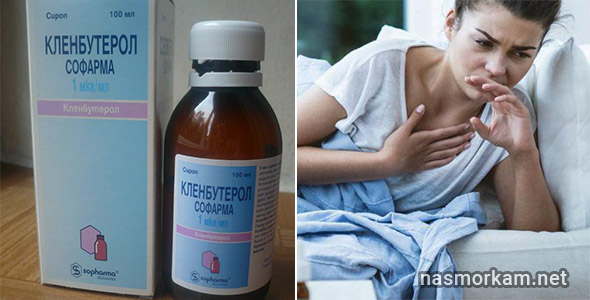
Before taking the medicine, it is advisable to rinse the throat with clean water or a weak solution of chamomile to cleanse it of food particles and sputum - otherwise the components of the syrup may not work properly and the effectiveness will be reduced.
Clenbuterol cough for children: dosage regimen
Clenbuterol is usually prescribed for children over 6 years of age. However, in some cases, a pediatric specialist (pediatrician) may prescribe syrup to younger patients, especially if the child has a prolonged dry cough.
Most often, children willingly drink syrup because of its sweet taste and soft enveloping texture - this is the advantage of liquid Clenbuterol over the same medicine in tablet form.
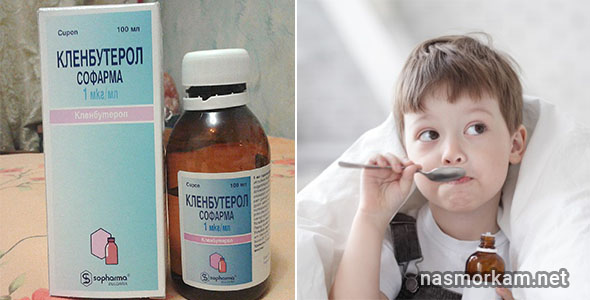
How to use Clenbuterol for children and how many days to drink it to a child? For an answer, you should carefully study the instructions for use. As a rule, single doses of the drug are as follows:
- Up to 8 months - 2.5 ml;
- From 8 months to 2 years - 5 ml;
- From 2 to 4 years - 7.5 ml;
- From 4 to 6 years - 10 ml;
- From 6 to 12 years old - 12-15 ml.
Clenbuterol is prescribed for children 2 times a day (morning, evening), before or after meals (as well as for adults).
Use during pregnancy and lactation
It is forbidden to take Clenbuterol during pregnancy (especially in the first and last trimesters), as well as during breastfeeding (since there is a presumed possibility of excretion of the drug with mother's breast milk.
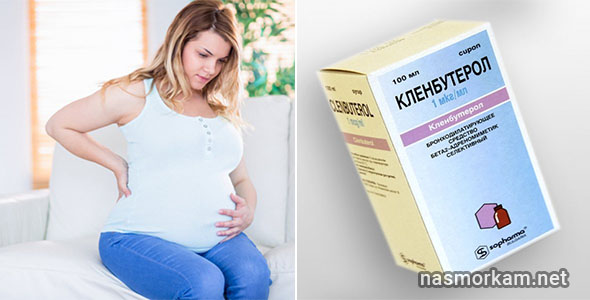
However, no clinical studies have been conducted in this regard), as well as directly during childbirth and in the postpartum period (due to the ability to inhibit contractions of the smooth muscles of the uterus).
Analogues: what to replace?
In the presence of individual intolerance to the components of Clenbuterol, it can be replaced with another medicine with a different active substance in the composition. The most popular analogues of the drug include:
- Codelac (the main component is butamirate);
- Sinekod (the main component is butamirate);
- Pertussin (includes synthetic and vegetable substances; the main components are thyme herb extract, potassium bromide);
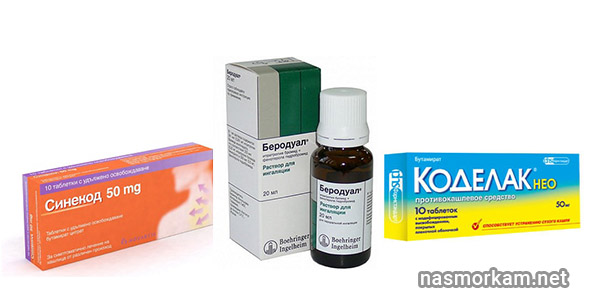
- Bronchoril (the main component is salbutamol);
- Berodual (the main components are ipratropium bromide, fenoterol).
These medicines have a good expectorant effect and are better tolerated by patients with allergic reactions to Clenbuterol.
Interaction with other drugs
Clenbuterol when coughing is categorically contraindicated to be taken with beta-blockers (metoprolol, anaprilin, and so on), since antagonism is noted with the simultaneous use of these drugs;
When combined with sympathomimetics, there is a mutual increase in toxicity
With the joint intake of syrup and cardiac glycosides, the load on the cardiovascular system increases sharply, there is a mutual increase in toxicity.
Clenbuterol significantly reduces the therapeutic effect of hypoglycemic drugs.
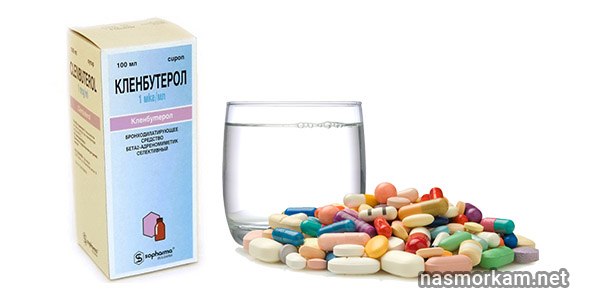
Taking syrup and monoamine oxidase inhibitors increases the risk of intracardiac conduction disorders.
To avoid the occurrence of such adverse reactions, the patient should be sure to tell the attending physician about all the medications he is currently taking.
Terms of sale of the drug
Clenbuterol is dispensed strictly according to the prescription prescribed by the attending physician.
special instructions
The negative effect of Clenbuterol on the ability to drive a car has been proven. In addition, when using the medicine, you need to temporarily refuse to perform work that requires strong emotional stress and increased attention.

Refrain from hazardous activities due to the possibility of side effects such as dizziness, muscle tremor, decreased attention, and patient performance.
How to store syrup?
Clenbuterol must be kept in a place protected from sunlight, inaccessible to children, with moderate humidity.
The storage temperature should not exceed 25 C. The pharmaceutical product must not be frozen. Shelf life, subject to storage conditions, is up to three years.
Finally
Clenbuterol is a fairly serious drug. It is necessary to treat its use with all responsibility.
Before you start taking the medication, it is necessary to consult a specialist who, after collecting an anamnesis and examining the patient, will write out a prescription that allows you to get a syrup at a pharmacy.

The dosage is also prescribed by the attending physician - and in no case should it be taken above or below the indicated amount, otherwise the risk of adverse events after an overdose will increase significantly, or the medicine will not work in full force.
If signs of intolerance appear, the use of Clenbuterol should be discontinued and contact a healthcare professional to select another pharmaceutical agent.





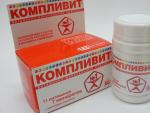


 Fat Burning Cardio: Benefits, Program Options, Helpful Tips
Fat Burning Cardio: Benefits, Program Options, Helpful Tips 7 most effective exercises for breast lift at home - a complex for women and girls
7 most effective exercises for breast lift at home - a complex for women and girls How to pump up at home in the shortest possible time?
How to pump up at home in the shortest possible time? Technique and important tips for doing the exercise
Technique and important tips for doing the exercise